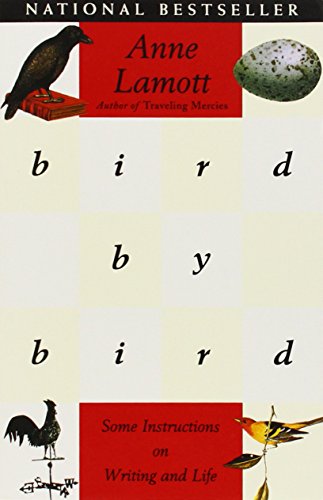4 Writing Tips from Anne Lamott in Bird by Bird
Twenty years ago, Anne Lamott published Bird by Bird: Some Instructions on Writing and Life. Today, it still sells like hotcakes. For the record, I’m not sure why we say “hotcakes” sell so well, but I am sure that Lamott would tell me to drop that cliché from my prose. Regardless, here are four quotes which I found provocative and helpful as I read her thoughts on the craft.
1. On the ethical, passionate center of your life and your writing:
“If you find that you start a number of stories or pieces that you don’t ever bother finishing, that you lose interest or faith in them along the way, it may be that there is nothing at their center about which you care passionately. You need to put yourself at their center, and what you believe to be true or right. The core, ethical concepts in which you most passionately believe are the language in which you are writing.” (103)
2. On writer’s block:
“We have all been there, and it feels like the end of the world. It’s like a little chickadee being hit with an H bomb. Here’s the thing, though. I no longer think of it as block. I think that is looking at the problem from the wrong angle. If your wife locks you out of the house, you don’t have a problem with the door. The word block suggests that you are constipated or stuck, when the truth is that you’re empty.” (177-8)
3. On not saving your “best” stuff for another day:
“Annie Dillard has said that day by day you have to give the work before you all the best stuff you have, not saving up for later projects. If you give freely, there will always be more. This is a radical proposition that runs so contrary to human nature, or at least contrary to my nature, that I personally keep trying to find loopholes in it. But it is only when I go ahead and decide to [go all-in] on a daily basis that I get any sense of full presence… Otherwise I am a weird little rodent squirreling things away, hoarding and worrying about supply.” (202)
4. Writing overcomes isolation:
“Becoming a writer is about becoming conscious. When you’re conscious and writing from a place of insight and simplicity and real caring about the truth, you have the ability to throw the lights on for your reader. He or she will recognize his or her life and truth in what you say, and the pictures you have painted, and this decreases the terrible sense of isolation that we have all too much of.” (226)
[Image]


